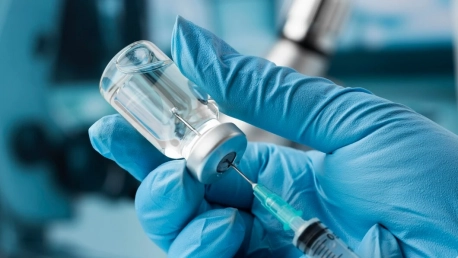Rabies continues to pose a major public health issue worldwide, but YS Biopharma is breaking new ground with its PIKA Rabies Vaccine. This vaccine has delivered promising results during its Phase III clinical trials. The innovation lies in the company’s unique PIKA adjuvant technology, which enhances the immune response, offering potential improvements over existing treatments. The standard rabies vaccination regimen, which extends over a 28-day period, can overburden healthcare systems and patients alike. By introducing the PIKA Rabies Vaccine, YS Biopharma is looking to streamline the vaccination regimen, thereby improving the accessibility and effectiveness of rabies prevention measures.
Encouraging Interim Results
The ongoing Phase III trial of YS Biopharma’s PIKA Rabies Vaccine is a major scientific undertaking. It involves 4,500 participants across several research centers in Pakistan and the Philippines. The trial, which is randomized, double-blind, and comparator-controlled, aims to establish the vaccine’s immunogenicity, safety, and manufacturing consistency. Moreover, the vaccine is designed for a shortened administration schedule that spans seven days, which is expected to enhance patient compliance.Interim results from the trial involving the first 900 participants look promising. The primary measures include the geometric mean titers of neutralizing antibodies against the rabies virus and seroconversion rates, measured at day 14 post-vaccination. The early findings indicate that the vaccine not only achieves its primary immunogenicity endpoint but also maintains a good safety profile. Notably, its efficacy seems to be on par with one of the leading rabies vaccines, and the shortened duration to immunity (just seven days) aligns with the World Health Organization’s objective to simplify rabies vaccine regimens around the world.
Rapid Protection and Long-Term Benefits
The PIKA Rabies Vaccine from YS Biopharma is set to change the game in terms of adhering to rabies prevention protocols, reducing the entire course to just one week without compromising the vaccine’s efficacy or safety. This could significantly increase the speed with which individuals at risk are protected, given that the currently lengthy vaccination protocol can hinder complete compliance. One of the vital goals of the Phase III trial is to evaluate the long-term immune response provided by the vaccine, and whether it maintains protective immunity over time. These results, which are eagerly anticipated to emerge over the course of the following year, will provide a clearer picture of the vaccine’s long-lasting benefits.Having been designated as an orphan drug by the US FDA, this vaccine is recognized as a significant advancement in the fight against rabies. Dr. Zenaida Mojares, the Chief Medical Officer at YS Biopharma, emphasizes the vaccine’s impressive immunogenicity and safety. If all goes well, it could represent an important step forward in global public health efforts and the handling of rabies exposure.









